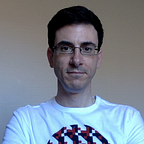On Radical Hope by Jonathan Lear — Part 3
In the previous post in this series, I looked at Heidegger’s account of anxiety and how it is bound up with the finitude of human existence. Anxiety is a mood which exposes the intelligibility of the world as something which is contingent on our own existential struggle to make sense of it. Lear’s account of anxiety in the face of cultural devastation is influenced by Heidegger, but also by the Danish philosopher Søren Kierkegaard. It is through the influence of the latter that Lear emphasizes the ironic nature of this experience of anxiety. What is meant by irony here?
Lear introduces the notion of irony in chapter one of Radical Hope by reflecting on the criteria for a vibrant culture:
- There must be established social roles that one can embody and interact with.
- There must be standards of excellence associated with these roles, that give us a sense of the culture’s ideals.
- There must be the possibility of constituting oneself as a certain sort of person — namely, one who embodies those ideals.
The sense of irony which Lear is concerned with arises historically when the possibility of constituting oneself as a certain sort of person (3) becomes problematic. In the case of the Crow, irony in this sense was impossible in the 1840s because the three criteria listed above cohered in such a way that ensured their culture’s vibrancy. But a hundred years later, when the Crow had been moved onto a reservation, this coherence collapsed. While it was still possible to recognise the traditional social roles, the standards of social excellence associated with most of these roles could no longer be realized. Intertribal warfare had been banned, traditional hunting had become impossible, and mortality rates from disease had almost wiped out a younger generation. Under these conditions, it became possible for the Crow to ask:
Among the warriors, is there a warrior?
One could call oneself a warrior, but it was no longer clear what the pursuing the ideals of being a warrior might entail once intertribal warfare had been banned. With the breakdown of social roles and the patterns of upbringing disrupted, the very possibility of constituting oneself as a Crow subject was thrown in question. It is in this light that one might ask the question:
Among the Crow, is there a Crow?
As outsiders, we seem to have no trouble reformulating this question as: among those who call themselves members of the Crow nation, are there any members who live up to the ideals of being a Crow? But from the perspective of the Crow people themselves, there is a disorientation inherent in the question which is not felt by the observer. In his essay “A Lost Conception of Irony,” Lear explains this difference as follows:
“[F]rom the perspective of my Crow friends, the question has a different aura. It makes them anxious; or rather it names a core anxiety. I mean anxiety in the literal sense of disruptive separation from the world and disorientation. It is easy for us to hear the question as though it were coming from the superego — a question of whether the Crow fail to live up to their ideals. But from the perspective of my Crow friends, the ideal is every bit as much in question as they are.”
It is not merely a theoretical question for the Crow, but a practical matter of how one should live. And it produces anxiety because there is no longer a clear answer to the question of how to go on.
This experience of irony can affect all of us as in coming to terms with our social roles. In such an experience, the question of what counts as excellence in the role is not simply an occasion to reflect upon whether we do in fact live up to such ideals; it leads to a moment of anxious disruption, as the very nature of those ideals is called into question. For Lear, this experience of irony raises the ethical question of how we can live in such a way that remains open to it without leading to despair. For Kierkegaard, the figure of Socrates represented an exemplar of ironic existence. I would suggest that in Radical Hope, Lear offers us the figure of Plenty Coups, the last great chief of the Crow, as another such exemplar. I will consider this further in my next post.
